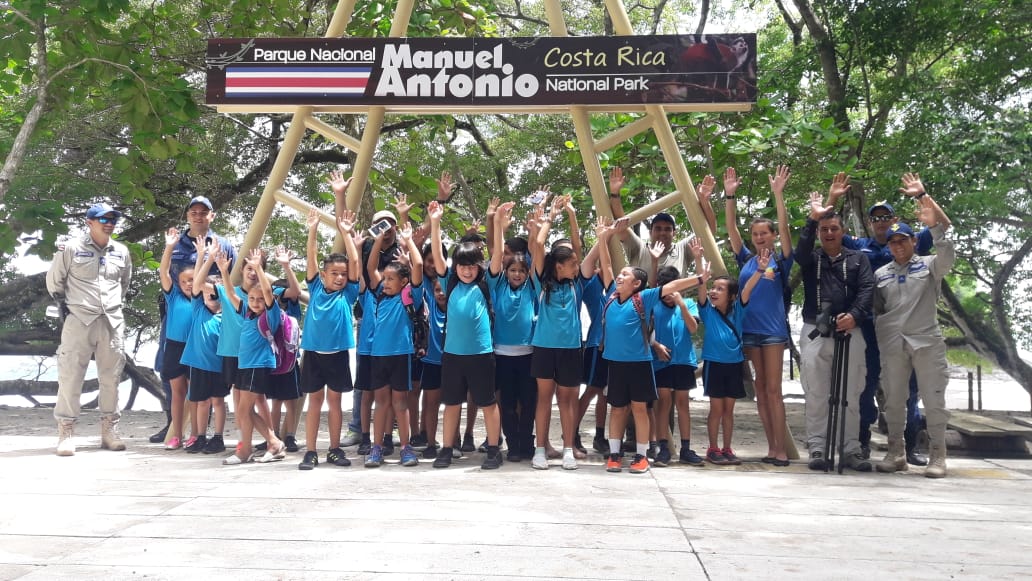The Titi Conservation Alliance is working hard for the conservation of the mono titi, the grey-crowned Central American squirrel monkey. Sadly, working towards conservation of the grey-crowned squirrel monkey in the Central Pacific Coast of Costa Rica means that we also encounter some of the sad daily realities for wildlife.
Top 5 reasons not to feed the monkeys (or any other wildlife)
- Monkeys are highly susceptible to diseases from human hands. They can die from bacteria transferred from your hands to the monkeys, bacteria that have no ill effect on you.
- Migration to human-populated areas where they are fed increases their risk of dog attacks and road accidents.
- Humans feeding monkeys in the wild creates a dangerous dependency which diminishes the monkeys’ survival abilities.
- Monkeys fed by humans can therefore become dependent on this feeding, and Irregular feeding leads to aggressive behavior towards humans and other species.
- Contrary to popular belief, bananas are not the ‘preferred’ food of monkeys in the wild. Bananas, especially those containing pesticides, can upset the monkeys’ delicate digestive system and cause serious dental problems that can lead to eventual death.
Threats to wildlife in the Naranjo River Biological Corridor
Within the Rio Naranjo Biological Corridor some activities create risks for the biodiversity of the area, among which, road hits, electrocutions, and hunting are the most serious.
Hunting mainly consists of illegal hunting and extraction of species or hunting for sport
Its principal objective is the illegal commercialization of wildlife. Individual animals can be sold to the public, who may keep them as pets or eat them. Species threatened by hunting in the Rio Naranjo Biological Corridor include:
- Parrots, macaws and parakeets / Lapas, loras y pericos
- Armadillos
- Agoutis – Guatusas
- Pacas – Tepezcuintles (Also known as conejo pintado in Panama and Peru)
- Peccaries and wild pigs – Zainos (known an cochino salvaje o jabalíes)
- Raccoons – Mapaches
- White-nosed coati / Pizotes
We hope we can work together with all of the local people of Aguirre County, and wider organisations, businesses and authorities, and we must be on the watch for these activities which put Costa Rica’s wildlife at risk, as these could lead to even further diminishing of the native populations. Let’s work together to protect this amazing wildlife!
Background on the Titi Conservation Alliance
The Titi Conservation Alliance was started in 2001 by a group of business owners within the tourist industry based around Manuel Antonio National Park, Costa Rica. Recognizing the need for conservation of their natural environment to maintain prosperity for their businesses, this group of entrepreneurs began the Alliance with the mission to promote sustainable development and to conserve the biodiversity of Costa Rica’s Central Pacific Region.
Today, the Alliance is composed of member businesses and individuals dedicated to saving the endangered titi squirrel monkey, and its habitat.
Through monthly membership contributions paid by member businesses, donations from concerned tourists wanting to help protect the beautiful areas they enjoy visiting, and the efforts of our staff and volunteers, the Titi Conservation Alliance is working to conserve the biodiversity of Costa Rica’s Central Pacific region through Sustainable Development, Habitat Reforestation, and Environmental Education.
If you are interested in finding out more about the work of the Titi Conservation Alliance, conservation of wild endangered species in Costa Rica and how you can help, please explore our website. You can read more at: www.monotiti.org, or contact us with any queries at: info@monotiti.org






